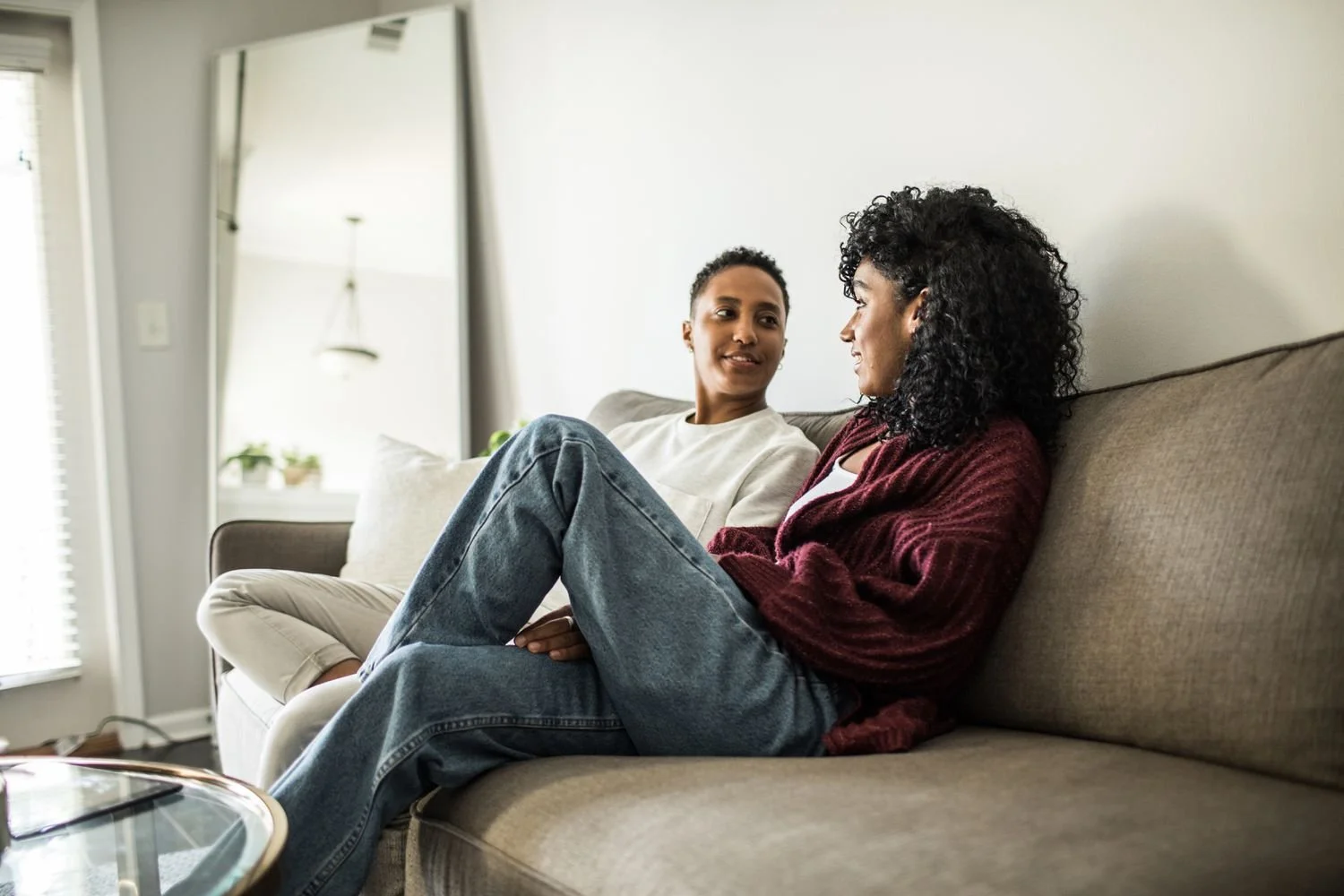Communication Patterns and Mental Health: Why the Way We Talk Matters
Hey friends, it’s your therapist-next-door.
If there’s one thing I’ve learned after hundreds of hours sitting(or virtually) across from clients, it’s this: how we talk to each other matters just as much as what we’re talking about. Communication isn’t just about words—it’s about connection, safety, and emotional health. When communication breaks down, relationships suffer, and so does our mental well-being.
Let’s unpack this a little.
Active Listening: The Moment That Changes Everything
A client once described how her roommate always came to her with problems. “She never listens to me,” she said. “The one time I tried to open up about my anxiety, she changed the subject to her research project.”
That moment stuck with me because it’s so common but powerful. So many of us are eager to speak, solve, or relate… but we miss the chance to simply listen.
Active listening means staying present without jumping in. It means letting someone finish a sentence, letting their silence hang for a moment, and letting them feel heard. It’s not flashy, but for someone who’s been overlooked or dismissed, it can be quietly life-changing.
Validation: Your Emotions Are Real (Yes, Even the Messy Ones)
A friend once sent me a voice message after a tough job interview. She was out of town, exhausted, and kept saying things like, “I know it’s not that big of a deal,” or “I shouldn’t feel this upset.” Instead of jumping in to cheer her up, I said, “It sounds like you really cared about this opportunity and worked hard for it. Of course it hurts when things don’t go the way we hoped.” There was a long pause before she replied: “Thank you. That’s exactly how I feel.”
Validation isn’t fixing, judging, or sugarcoating. It’s saying, “What you feel makes sense,” even if you’d feel differently in the same situation. You’d be surprised how healing it can be to simply know your emotions have a place and won’t be pushed aside.
Nonviolent Communication (NVC): Speaking Without Blame
A teen I worked with once told me, “Every time I tell my mom I’m stressed, she says I’m being dramatic. So I just stopped talking.”
In our sessions, we practiced a small shift: Instead of saying, “You never take me seriously,” she tried, “When I hear that I’m being dramatic, I feel dismissed. What I need is some space to talk things through.”
The next time they had a tough conversation, she used that new script. Her mom didn’t magically transform overnight—but she paused. She listened. And that pause? That was new.
Nonviolent Communication isn’t about sugarcoating things. It’s about owning your feelings and expressing your needs clearly—without turning the other person into the enemy. It might feel uncomfortable in the moment, but it creates space for connection rather than pure blame.
When Communication Breaks Down: The Mental Health Toll
Now let’s talk about the flip side. What happens when communication goes wrong?
• Anxiety: When we’re constantly misunderstood or afraid to speak up, our minds go into overdrive. We rehearse conversations, replay arguments, and predict worst-case scenarios.
• Depression: Feeling unheard or dismissed over and over again can lead to hopelessness—like our voice doesn’t matter.
• Anger: Miscommunication can lead to chronic frustration, especially when we feel attacked or ignored.
I’ve seen all of these play out in therapy. And in most cases, the solution isn’t more talking—it’s better talking. Slowing down. Listening deeply. Speaking kindly, even when we’re upset.
Start Small, Grow Big
Improving how you communicate doesn't mean being perfect—it just means being intentional. Try this:
• Next time someone vents, hold back advice and just listen.
• When someone shares something emotional, say “That makes sense,” instead of “You shouldn’t feel that way.”
• Practice using “I feel…” instead of “You always…”
Small shifts can lead to big healing. 💖
Let’s keep learning, growing, and connecting—one conversation at a time.
Until next time,
Yanna
Therapist & Human Being, just like you



